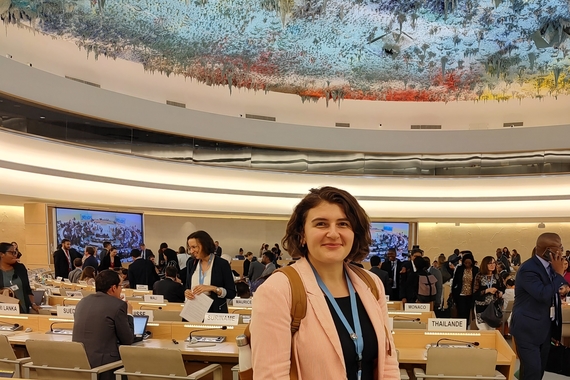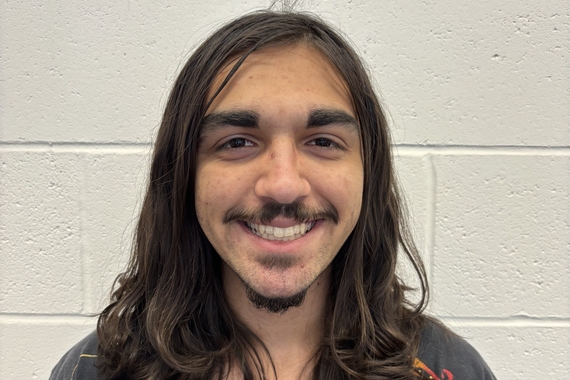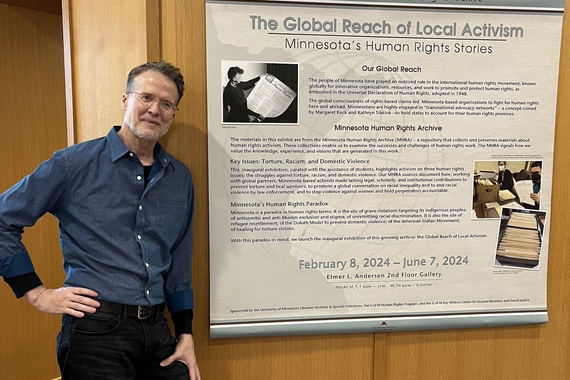The Murder of George Floyd Shapes International Human Rights Discourse
The murder of George Floyd by former Minneapolis Police Department officer Derek Chauvin on May 25th, 2020, brought issues of systemic racism, police brutality, and racial justice to the forefront of national and international discourse. As the trial of Derek Chauvin began earlier this week on March 29, 2021 we examine here measures taken by the international community to address police brutality against BIPOC people globally and in the U.S.
In the months following the murder of George Floyd, waves of protests were seen not just across the United States in cities such as Minneapolis, Seattle, Washington, DC, and Los Angeles, but around the world as well. People in England, France, Germany, South Korea, Japan and Ghana, among other countries, marched for racial justice, human rights, and accountability.
Such protests marked a rejection of the fundamental inequality and discrimination that characterize life in the United States and elsewhere for Black and other people of color. The George Floyd case and the public response to it prompted the United Nations to engage in discussions on racism and police brutality. For example, the UN Human Rights Council condemned the crackdown on peaceful protests, and UN independent human rights experts and held a special session on the escalating situation of police violence and the repression of protests by more than 160 non-governmental organizations in the U.S.
In June 2020, Ms. E. Tendayi Achiume, the UN Special Rapporteur on the Elimination of Racial Discrimination issued a statement “expressing alarm at the killing of George Floyd and the recurrence of and impunity for police killings of people of African descent in the United States; expressing concern for continuing practices of racial profiling, and police brutality against racial and ethnic minorities; and expressing concern for the excessive use of force by law enforcement officials against peaceful anti-racism protestors in the United States.”
George Floyd’s brother, Terrence Floyd, also testified at the UN Human Rights Council’s special June 2020 session. Terrence provided important insight into police brutality committed against Black people in the United States and the treatment of protestors by law enforcement officers.
The statement made by the representatives of three UN special procedures -- on race discrimination, on people of African descent, and on freedom of assembly-- made explicit the systemic nature of racism at an international scale. It tied issues of discrimination and brutality to histories of colonialism, refuting the “bad apple” theory that has been promoted by the former president of the United States, among others. Citing continued reports of extrajudicial killings of Black people by the police in the midst of uprisings for racial justice, the statement illustrates the entrenched nature of racial violence in the US.
The special procedures also called for the Human Rights Council to create an independent commission to investigate policing and racism in both the United States and internationally. The petition for an investigation of human rights violations in the United States is significant; never before has a country of the Global North been subjected to independent investigation by the Human Rights Council of the UN, according to Salma El Hosseiny, of the International Society for Human Rights.
The petition for the creation of an independent investigative body was met with resistance from the United States and its allies. Representatives from European and Latin American countries argued the universal nature of racism, looking to downplay the atrocities committed against Black people in the United States. They argued that the U.S. government has the capacity to address systemic racism in its own communities, especially as it manifests in policing.
Due to the inaction of the U.S. government in the confrontation of racial injustice, a large group of UN independent experts released an additional statement on February 26, 2021, highlighting the continued existence of systemic racism in policing and the need for concrete reforms.
The experts pointed out that inaction has material consequences and implies that the lives of Black people matter less when they are abused by members of U.S. law enforcement. According to these experts, “What is at stake here here is the lives and lived experiences of human beings who deserve fundamental human rights protections, and who should not be denied these rights on the basis of the color of their skin.”


